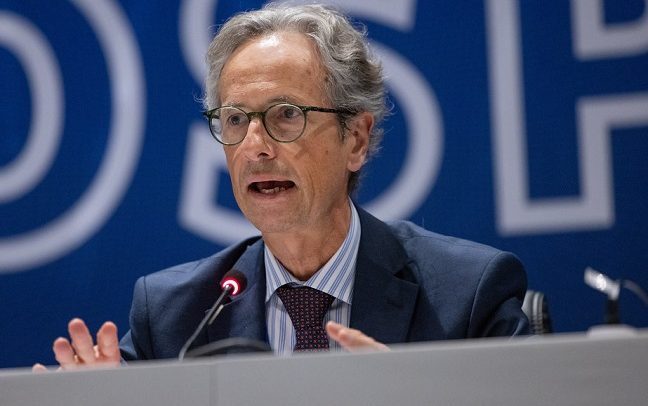Francois Valerian
Ghana has maintained its position on the latest Corruption Perception Index (CPI), placing 43rd ahead of 39 sub-Saharan Africa countries.
The countries are Burkina Faso (41st), Côte d’Ivoire (40th), Tanzania (40th), and Lesotho (39th).
CPI for 2023, which was released by Transparency International (TI) yesterday, indicated that Ghana scored 43rd for the fourth time and ranked 70th out of 180 countries.
Ghana also ranked lower than seven other countries such Mauritius which scored 51, Namibia, 49, and Sao Tome and Principe, 45.
Nigeria scored 25 and ranked 145, while Senegal scored 43 and ranked 70. Niger scored 32 and ranked 125 while Denmark scored 90.
Other countries that scored higher in the CPI include Singapore, Norway, Sweden, Finland, Switzerland, scoring 83, 84, 82, 87 and 82 respectively.
The report shows that though some countries have made significant progress, others are still struggling to fight corruption with 90% of them being sub-Saharan African nations, scoring 33 out of 100.
“Over two-thirds of countries scored below 50 out of 100, which strongly indicates that they have serious corruption problems.
“The global average is stuck at only 43, while the vast majority of countries have made no progress or declined in the last decade. What is more, 23 countries fell to their lowest scores to date this year,” the report stated.
The Board Chairman of TI, François Valérian, stated that, “Corruption will continue to thrive until justice systems can punish wrongdoing and keep governments in check. When justice is bought or politically interfered with, it is the people who suffer.”
“Leaders should fully invest in and guarantee the independence of institutions that uphold the law and tackle corruption. It is time to end impunity for corruption,” he added.
Under the theme of “Corruption and Justice,” the CPI for 2023 shows that Ghana’s stagnant score reflects a global trend of failed justice systems, which in turn allows corruption to flourish.
Ghana Integrity Initiative (GII), the local chapter of Transparency International, stated that the ongoing decline in Ghana’s anti-corruption drive is attributable to a deteriorating justice system.
According to GII, the report reveals the weakened justice system which reduces the accountability of public officials that further festers corruption.
By Ebenezer K. Amponsah


